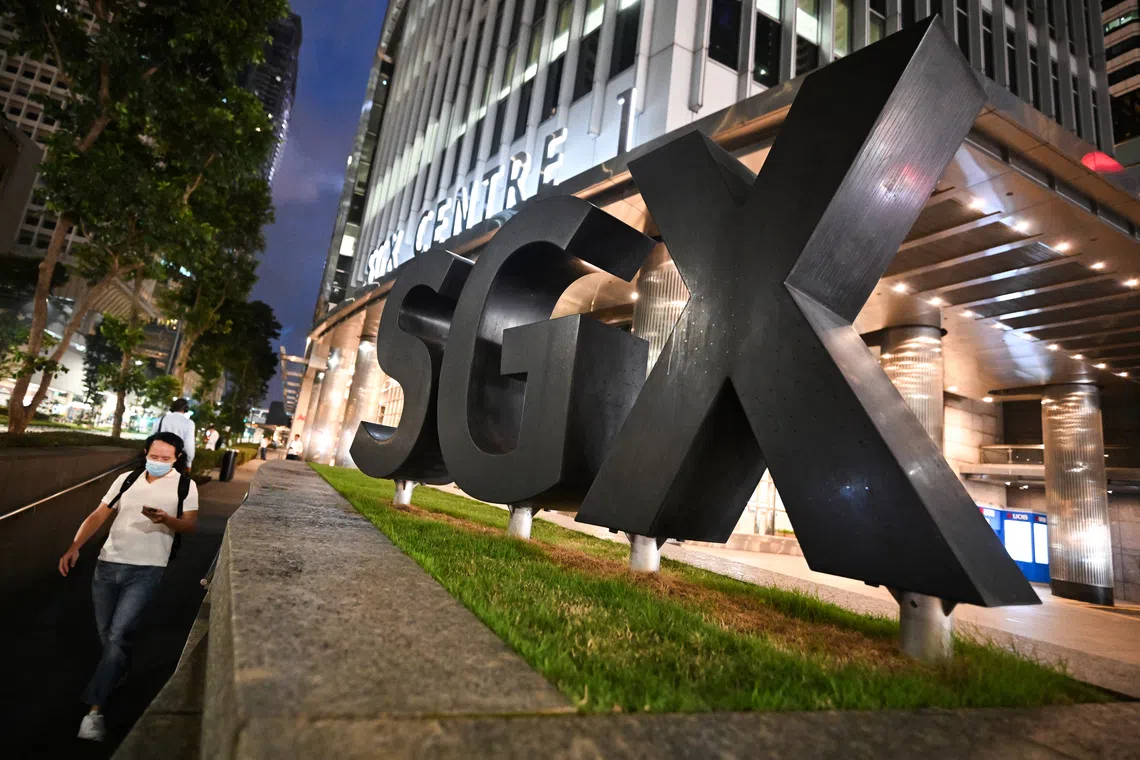Singapore stocks rise as investors react to growth forecast
Sign up now: Get ST's newsletters delivered to your inbox

Across the broader market, decliners outnumbered advancers 306 to 257 after about 1.5 billion shares changed hands.
ST PHOTO: LIM YAOHUI
SINGAPORE – Local stocks snapped a five-day losing streak to end higher on Sept 23, as investors reacted to comments that Singapore can focus on opportunities to boost growth at a faster clip.
Deputy Prime Minister Gan Kim Yong told Parliament on Sept 22 the country can aim for economic growth of between 3 per cent and 4 per cent
In August, DPM Gan, who is also Minister for Trade and Industry, had said that Singapore should use the current window of opportunity to achieve faster growth before it stabilises at the longer-term trend rate of 2 per cent to 3 per cent.
The benchmark Straits Times Index (STI) rose 0.1 per cent or 5.3 points to end at 4,302.67.
Across the broader market, decliners outnumbered advancers 306 to 257 after about 1.5 billion shares worth $1.4 billion changed hands.
Seatrium was the top gainer on the STI, rising 3.9 per cent or 9 cents to $2.43.
The biggest loser was Singtel, which declined 1.6 per cent or 7 cents to $4.27.
The trio of local banks closed mainly higher. DBS Bank ended up 0.5 per cent or 27 cents at $50.57. UOB rose 0.03 per cent or 1 cent to $34.62, and OCBC Bank ended flat at $16.44.
Across the region, major indexes closed mixed.
Japan’s Nikkei 225 was up nearly 1 per cent, while South Korea’s Kospi advanced 0.5 per cent.
The Shanghai Composite dipped 0.2 per cent and the Shenzhen Component fell 0.3 per cent. Hong Kong’s Hang Seng retreated 0.7 per cent amid thinner-than-usual volumes, as the city faces its most damaging typhoon since 2018. THE BUSINESS TIMES


